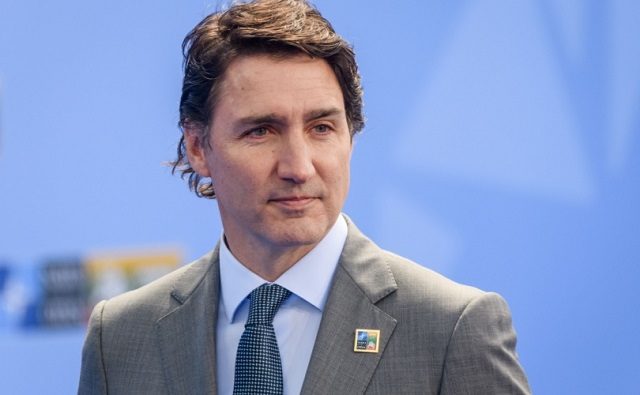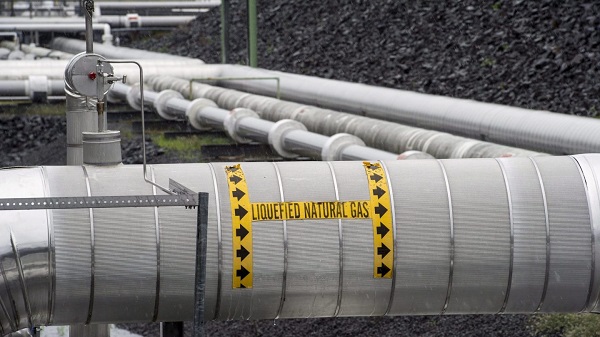Energy
Canadian MPs pass motion demanding Trudeau hold ‘carbon tax emergency meeting’ with all premiers

From LifeSiteNews
The prime minister has five weeks to call a publicly televised meeting with Canada’s 14 premiers to discuss the carbon tax.
A Conservative, non-binding motion demanding Prime Minister Justin Trudeau meet publicly with Canada’s 14 premiers about the carbon tax passed in the House of Commons on April 10.
“That the House declare that the Prime Minister convene a carbon tax emergency meeting with all of Canada’s 14 first ministers,” the text of the motion reads.
According to the motion, titled “Carbon Tax Emergency Meeting,” the meeting will address:”(a) the ongoing carbon tax crisis and the financial burden it places on Canadians (b) the Prime Minister’s recent 23% carbon tax increase (c) plans for provinces to opt-out of the federal carbon tax to pursue other responsible ideas to lower emissions, given that under the government’s current environmental plan.”
The motion mandates that the meeting is publicly televised and held within five weeks of the motion being passed.
Surprisingly, New Democratic Party (NDP) and Bloc Quebecois Members of Parliament (MPs) broke from their usual coalition with the Liberal Party and voted alongside Conservatives in favor of the motion. The motion was passed with 172 votes in favor compared with 150 against.
Conservative leader Pierre Poilievre celebrated the decision on X, formerly known as Twitter, writing, “Common sense Conservative motion on Trudeau convening a televised carbon tax meeting with Canada’s premiers PASSED.”
“Trudeau must listen to Canadians on the financial pain his carbon tax is causing,” he declared.
The demand to meet with Canada’s premiers to discuss the tax comes as Trudeau recently refused invitations from Premiers Scott Moe of Saskatchewan, Danielle Smith of Alberta, Doug Ford of Ontario, Andrew Furey of Newfoundland and Labrador, and Blaine Higgs of New Brunswick to discuss the carbon tax’s detrimental effect on Canadians finances.
Additionally, on April 1, thousands of Canadians took to the streets to protest Trudeau’s 23 percent carbon tax increase on the same day, with some blocking major highways in Maritime and Western provinces.
Trudeau increased the carbon tax despite seven out of 10 provincial premiers and 70 percent of Canadians pleading with him to halt his plan.
Trudeau’s carbon tax, framed as a way to reduce carbon emissions, has cost Canadian households hundreds of dollars annually despite rebates.
The increased costs are only expected to rise. A recent report revealed that a carbon tax of more than $350 per tonne is needed to reach Trudeau’s net-zero goals by 2050.
Currently, Canadians living in provinces under the federal carbon pricing scheme pay $80 per tonne, but the Trudeau government has a goal of $170 per tonne by 2030.
However, despite appeals from politicians and Canadians alike, Trudeau remains determined to increase the carbon tax regardless of its effects on citizens’ lives.
The Trudeau government’s current environmental goals – which are in lockstep with the United Nations’ 2030 Agenda for Sustainable Development – include phasing out coal-fired power plants, reducing fertilizer usage, and curbing natural gas use over the coming decades.
The reduction and eventual elimination of so-called “fossil fuels” and a transition to unreliable “green” energy has also been pushed by the World Economic Forum, the globalist group behind the socialist “Great Reset” agenda in which Trudeau and some of his cabinet are involved.
Canadian Energy Centre
First Nations in Manitoba pushing for LNG exports from Hudson’s Bay

From the Canadian Energy Centre
By Will Gibson
NeeStaNan project would use port location selected by Canadian government more than 100 years ago
Building a port on Hudson’s Bay to ship natural resources harvested across Western Canada to the world has been a long-held dream of Canadian politicians, starting with Sir Wilfred Laurier.
Since 1931, a small deepwater port has operated at Churchill, Manitoba, primarily shipping grain but more recently expanding handling of critical minerals and fertilizers.
A group of 11 First Nations in Manitoba plans to build an additional industrial terminal nearby at Port Nelson to ship liquefied natural gas (LNG) to Europe and potash to Brazil.
Robyn Lore, a director with project backer NeeStaNan, which is Cree for “all of us,” said it makes more sense to ship Canadian LNG to Europe from an Arctic port than it does to send Canadian natural gas all the way to the U.S. Gulf Coast to be exported as LNG to the same place – which is happening today.
“There is absolutely a business case for sending our LNG directly to European markets rather than sending our natural gas down to the Gulf Coast and having them liquefy it and ship it over,” Lore said. “It’s in Canada’s interest to do this.”
Over 100 years ago, the Port Nelson location at the south end of Hudson’s Bay on the Nelson River was the first to be considered for a Canadian Arctic port.
In 1912, a Port Nelson project was selected to proceed rather than a port at Churchill, about 280 kilometres north.
The Port Nelson site was earmarked by federal government engineers as the most cost-effective location for a terminal to ship Canadian resources overseas.
Construction started but was marred by building challenges due to violent winter storms that beached supply ships and badly damaged the dredge used to deepen the waters around the port.
By 1918, the project was abandoned.
In the 1920s, Prime Minister William Lyon MacKenzie King chose Churchill as the new location for a port on Hudson’s Bay, where it was built and continues to operate today between late July and early November when it is not iced in.
Lore sees using modern technology at Port Nelson including dredging or extending a floating wharf to overcome the challenges that stopped the project from proceeding more than a century ago.
He said natural gas could travel to the terminal through a 1,000-kilometre spur line off TC Energy’s Canadian Mainline by using Manitoba Hydro’s existing right of way.
A second option proposes shipping natural gas through Pembina Pipeline’s Alliance system to Regina, where it could be liquefied and shipped by rail to Port Nelson.
The original rail bed to Port Nelson still exists, and about 150 kilometers of track would have to be laid to reach the proposed site, Lore said.
“Our vision is for a rail line that can handle 150-car trains with loads of 120 tonnes per car running at 80 kilometers per hour. That’s doable on the line from Amery to Port Nelson. It makes the economics work for shippers,” said Lore.
Port Nelson could be used around the year because saltwater ice is easier to break through using modern icebreakers than freshwater ice that impacts Churchill between November and May.
Lore, however, is quick to quell the notion NeeStaNan is competing against the existing port.
“We want our project to proceed on its merits and collaborate with other ports for greater efficiency,” he said.
“It makes sense for Manitoba, and it makes sense for Canada, even more than it did for Laurier more than 100 years ago.”
Energy
Straits of Mackinac Tunnel for Line 5 Pipeline to get “accelerated review”: US Army Corps of Engineers


From the Daily Caller News Foundation
By Audrey Streb
The Army Corps of Engineers on Tuesday announced an accelerated review of a Michigan pipeline tunnel under the Straits of Mackinac following President Donald Trump’s declaration of a “national energy emergency” on day one of his second term.
Enbridge’s Line 5 oil pipeline is among 600 projects to receive an emergency designation following Trump’s January executive order declaring a national energy emergency and expediting reviews of pending energy projects. The action instructed the Army Corps to use emergency authority under the Clean Water Act to speed up pipeline construction.
“An energy supply situation which would result in an unacceptable hazard to life, a significant loss of property, or an immediate, unforeseen, and significant economic hardship,” if not acted upon quickly, the public notice reads.

U.S. President Donald Trump holds up a signed executive order as (L-R) U.S. Treasury Secretary Scott Bessent, Secretary of Commerce Howard Lutnick and Interior Secretary Doug Burgum look on in the Oval Office of the White House on April 09, 2025 in Washington, DC. (Photo by Anna Moneymaker/Getty Images)
“Line 5 is critical energy infrastructure,” Calgary-based Enbridge wrote to the DCNF. The company noted that it submitted its permit applications to state and federal regulators five years ago and described the project as “designed to make a safe pipeline safer while also ensuring the continued safe, secure, and affordable delivery of essential energy to the Great Lakes region.”
Army Corps’ Detroit District did not respond to the DCNF’s request for a copy of the notice or for comment.
The pipeline has been active since 1953 and extends for 645 miles across the state of Michigan, according to the Department of Environment, Great Lakes, and Energy website. Line 5 supplies 65% of the propane needs in Michigan’s Upper Peninsula and 55% of the state’s overall propane demand, according to Enbridge.
The project has faced legal trouble and permitting delays that have hindered its expansion. Michigan Democratic Gov. Gretchen Whitmer in 2019 used a legal opinion by Attorney General Dana Nessel to argue that the law that created the authority to approve the project “because its provisions go beyond the scope of what was disclosed in its title.”
The State of Michigan greenlit the project in 2021 and the Michigan Public Service Commission approved placing the new pipeline segment in 2023.
Trump has championed an American energy production revival, stating throughout his 2024 campaign that he wanted to “drill, baby, drill,” in reference to oil drilling on U.S. soil.
-

 Autism2 days ago
Autism2 days agoRFK Jr. Exposes a Chilling New Autism Reality
-

 COVID-192 days ago
COVID-192 days agoCanadian student denied religious exemption for COVID jab takes tech school to court
-

 2025 Federal Election2 days ago
2025 Federal Election2 days agoNeil Young + Carney / Freedom Bros
-

 International2 days ago
International2 days agoUK Supreme Court rules ‘woman’ means biological female
-

 2025 Federal Election1 day ago
2025 Federal Election1 day agoTucker Carlson Interviews Maxime Bernier: Trump’s Tariffs, Mass Immigration, and the Oncoming Canadian Revolution
-

 Business1 day ago
Business1 day agoChina, Mexico, Canada Flagged in $1.4 Billion Fentanyl Trade by U.S. Financial Watchdog
-

 Health2 days ago
Health2 days agoWHO member states agree on draft of ‘pandemic treaty’ that could be adopted in May
-

 Business1 day ago
Business1 day agoDOGE Is Ending The ‘Eternal Life’ Of Government








